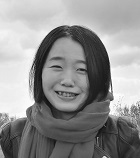Contact
Eiko Honda specializes in intellectual history of modern Japan, with a focus on scientist-polymaths whose transdisciplinary paradigm emerged out of nature-culture entanglements. At the Rachel Carson Centre, she will be completing her monograph “The Emergence of Queer Nature: Minakata Kumagusu and the Making of Microbial Paradigm, 1887–1912.” Prior to her present position as a research and teaching associate in history at the Nissan Institute of Japanese Studies, she was the 2021 Robert and Lisa Sainsbury Fellow at the Sainsbury Institute for the Study of Japanese Arts and Cultures. She completed her PhD in history at the University of Oxford (2021) following a curatorial fellowship awarded by Japan’s Agency for Cultural Affairs (2013–2016).
RCC Research Project: The Emergence of Queer Nature: Minakata Kumagusu and the Making of Microbial Paradigm, 1887–1912
Selected Publications:
- “Minakata Kumagusu and the Emergence of Queer Nature: The Civilisation Theory, Buddhist Science and Microbes, 1887–1892.” In Modern Asian Studies. Cambridge: University of Cambridge Press, forthcoming.
- with Amanda Power and Iva Peša. “Undoing the Discipline: History in the Time of Climate Crisis and COVID-19.” Journal for the History of Environment and Society 5, (2020): 33–44.
- “Knowledge without Supremacy: Japanese Studies in the Face of Global Ecological Crisis.” In Toshiba International Foundation 30th Anniversary Essay Contest. Berlin and Tokyo: European Association for Japanese Studies & Toshiba International Foundation, 2019.
- “Political Ecology of Art and Architecture in Japan: 100 Years Ago and Now.” Journal of Contemporary Chinese Art 3, no. 3 (2016): 243–264.
- “‘Planetary’ Knowledge? Moving Beyond Internationalism.” The Anthropocene and Our Post-Natural Future 5, no. 6 (2016): 36–45.
- “On Atomic Subjectivity.” In Nuclear Culture Source Book, edited by Ele Carpenter, 131–133. London: Black Dog Publishing, 2016.


